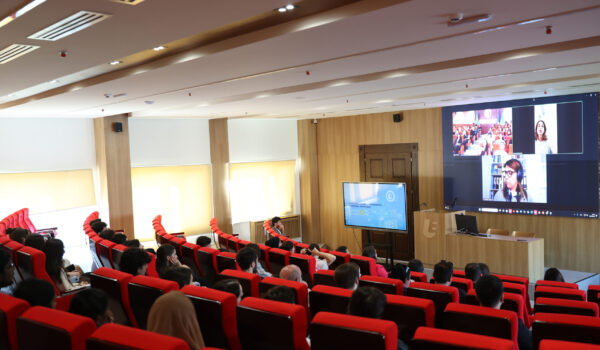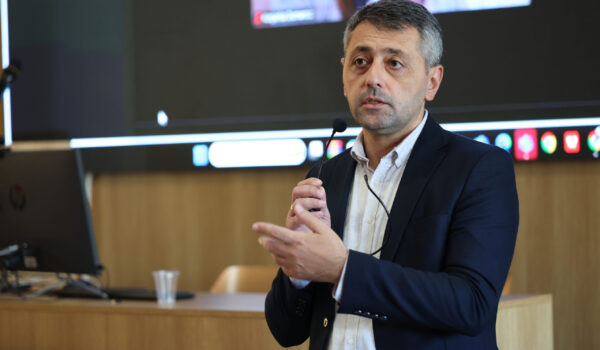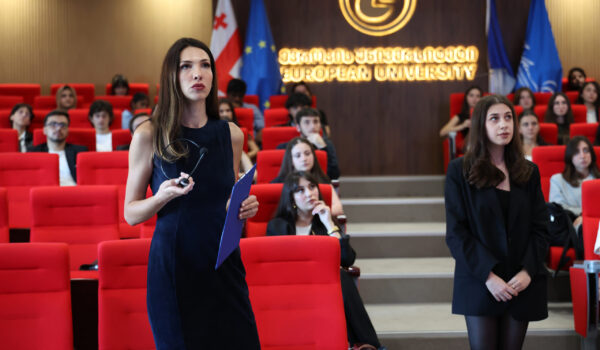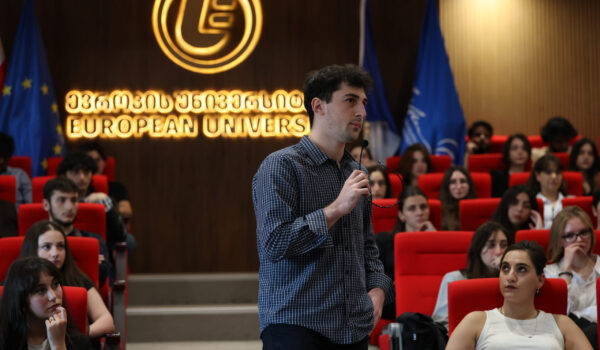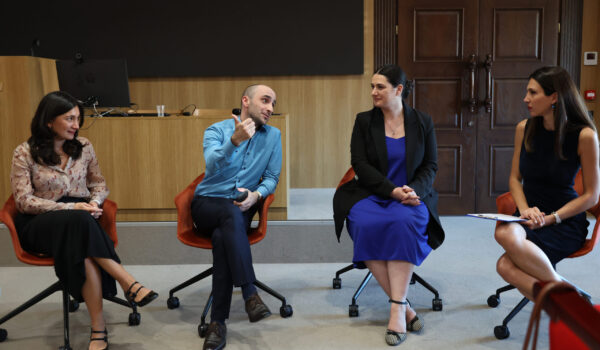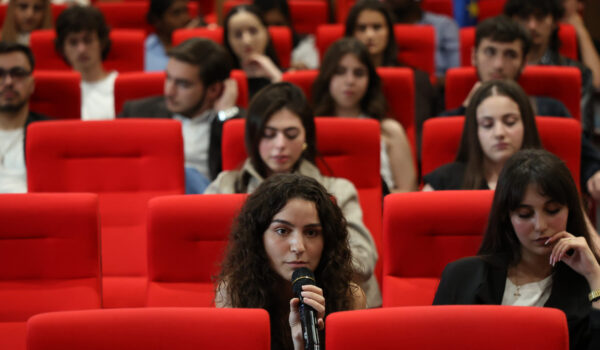European University Concludes the Second Jean Monnet Summer Academy
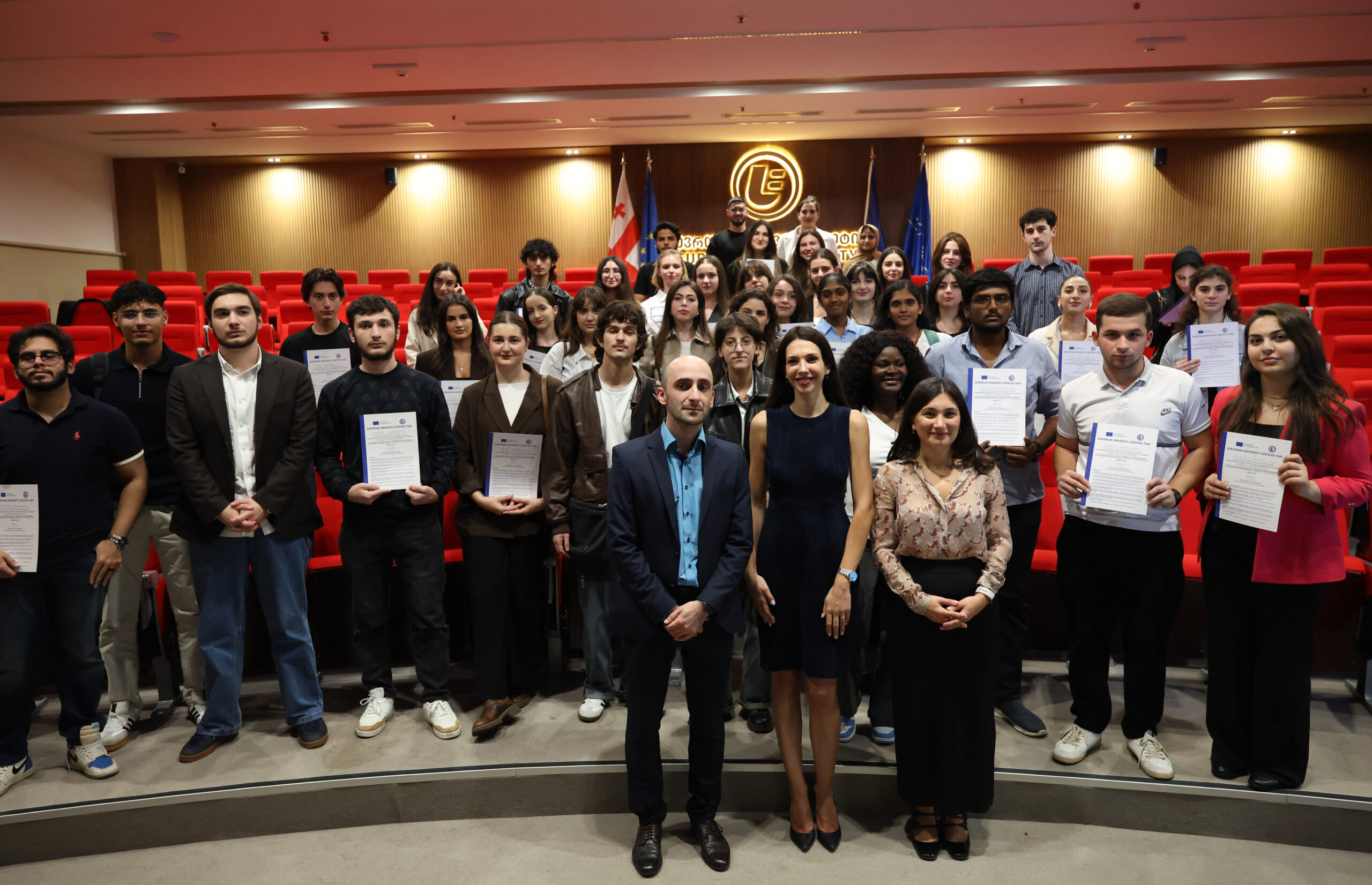
European University celebrated the conclusion of its Jean Monnet Summer Academy on EU Enlargement with a hybrid ceremony that blended high-level reflections, sharp debate, and recognition of student achievement.
The event was opened by Dr. Tatia Dolidze, Jean Monnet Academic Coordinator, together with Vice-Rector Dr. Nikoloz Parjanadze, who praised the Academy’s role in strengthening European-oriented education in Georgia. A special guest of the ceremony, Ms. Medea Bugulashvili from the Erasmus+ National Office in Georgia, addressed the audience with warm words of encouragement, underlining the importance of Erasmus+ and Jean Monnet activities in supporting Georgia’s European path
The academic program of the day featured two full-length guest lectures with Q&A. Prof. Kosjenka Dumančić of the University of Zagreb presented Croatia’s accession experience as the EU’s most recent new member, offering practical lessons for Georgia and the wider region. This was followed by Prof. Kornely Kakachia of Tbilisi State University, who discussed Georgia’s integration prospects and the challenges identified in the latest enlargement package
The centerpiece of the ceremony was an innovative one-liner panel moderated by Assoc. Prof. Tatia Dolidze. Panelists Dr. Tamta Tskhovrebadze, Dr. Tinatin Akhvlediani, and Dr. Bidzina Lebanidze tackled questions with sharp, witty brevity, creating a fast-paced and highly engaging debate. They reflected on whether Georgia risks being left behind while Ukraine and Moldova advance in accession talks, pinpointed rule of law, depolarization, media freedom, and EU alignment as the critical delivery gaps, and debated whether Georgia’s democratic turbulence is seen in Brussels as temporary or as a structural trend. The discussion also touched on lessons from the Western Balkans and Turkey, the risk of Georgia’s candidacy being “frozen,” and the role of youth and universities in sustaining the pro-European trajectory even when politics falters. The panel closed with a lightning round on what Brussels should do next, what Georgia must deliver in 2025, and what society can do in the meantime — leaving the audience with memorable and thought-provoking takeaways
The ceremony concluded with the awarding of certificates to students and school pupils who had successfully completed the Academy’s intensive program. Their recognition highlighted the Academy’s broader mission: to foster a new generation of informed and active Europeans in Georgia, capable of connecting EU debates to domestic reform agendas and contributing to the country’s European future.


